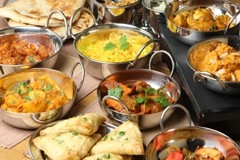Ankush at large
Fallacy to think Indians are leaning towards healthy foods

Not really. I had two hours to kill and it was 38C in the shade outside.
Now this food maker was claiming to launch what would be a game-changer in the Indian jams category. The company, which has European roots, was announcing the launch of sugar-free jams straight from its international range.
I will be honest here and tell you that I had never heard of anything like it—after all, what is jam without sugar? I had never seen them on the shelves and neither had I ever chanced upon anybody who had consumed any. Thankfully, the firm’s representatives were at hand to help me out of my arrogance.
Sugar-free jams, they said, were just the right product for the Indian jam market, which is currently dominated by just a couple of players. These jams, the official said, have a ready market in India where eating healthy is catching on and people don’t want to compromise on health and fitness. People want to look good and this jam would not augment their love handles like regular, sugary jam does. The new, young Indian, they said, would love this jam.
Hold ‘em healthy horses, please.
In the last two years of reporting on the food and beverage sector in India, I have heard this statement too often—that Indians are starting to eat healthier foods. This viewpoint comes on the back of a booming economy driven largely by an overworked young workforce that is falling prey to lifestyle diseases thanks to its increasing purchasing power. To fix it, they are all destined to buy healthier foods.
My opinion is that this is a gross misreading of what India eats and, more importantly, how it chooses what it eats.
Let me break it down here. First, it must be pointed out that this young workforce—the one the industry thinks eats so healthy—is really the smallest fraction of the market. It might be the smallest, but it is also be the noisiest. They really aren’t the decision makers or the trend setters for the larger Indian market.
What the industry really wants to target and probably does at large, is the lower-classes, the lower middle-class and the upper middle-class, and the transitional phase between these classes, which is vibrant thanks to this booming economy everyone talks about. Thousands, and maybe millions, are leaving their existing segment and buying up.
The first deciding factor for people, outside of taste, is affordability. As long as a person can afford the food product, he will keep it in his shopping sights. It is the qualifier. Given that healthier foods also cost more in this country—and I suspect everywhere else as well—such foods don’t make the first-cut of affordability. No regular Indian mom is picking a healthier curd if it costs 10 bucks more.
The second is connected to the buying-up I talk about. Going by what thy neighbour covets, Indians normally try to purchase the very product they could not before, the day they can afford it. This is the single biggest major driver of food purchases. This is why the Indian mom is going to pick up the bar of chocolate whenever she goes shopping.
Will they buy a product because the manufacturer says it is healthier? Umm… I will probably go with no for now.
What I feel some companies are doing is judging the material cycle in India and seeing it through the prism of the West. India as a country is just emerging from the shadows of poverty at large and is being boosted by heavy industrialisation and high employment. The country is on the way to where the West last was about three to four decades ago. And much of the buying and eating trends will reflect that.
Eventually, the country will catch up in the cycle, perhaps faster than we can predict. Then maybe we (well, I am Indian) can catch up on the West’s fascination for our Yoga and low-cal yoghurt. Until then, its pretty much chips, cupcakes and curry for us.
Have your say: Do you agree with Ankush? Let us know in the comments below.











